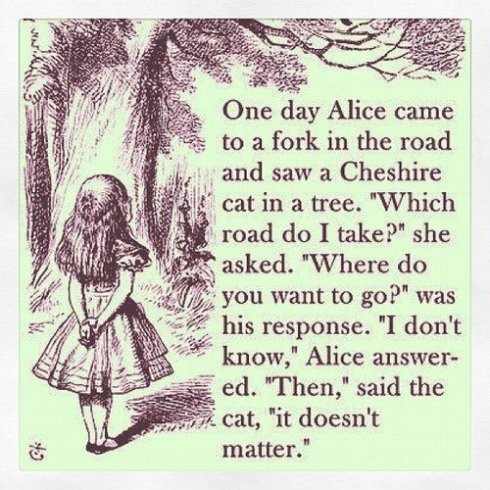It’s a well-accepted approach in sports that the fastest way to a finish line is with negative splits—i.e. to get faster as the race progresses. In the ultrarunning community, this approach more resembles a sacred mantra than a mere guideline. Continue reading
Numbers are important. So is scale.
I love thinking about numbers, and so there are few things more important to me than a proper appreciation of numbers and looking at them with an appropriate perspective. Scale can be hard to fathom. Especially when the numbers are very big or very small. Continue reading
If only measuring ‘the best’ were easy (Part 3)
All of the discussion about ‘the best scientist’ has been in pursuit of one goal: to figure out the best [1] way to fund scientists. Continue reading
Choosing ‘the best scientist’ requires a roadmap to the science of tomorrow (Part 2)

In my first post in this three-part series on the biomedical system, I discussed the fundamental flaw in using ‘the best’ indiscriminately, without acknowledging that, more often than not, there is no universal, Platonic ideal. In this post, I’m going to explore how choosing our ranking system requires a deeper conversation about where it is that we, as a scientific community, want to be in twenty or thirty years.[1] Continue reading
Defining ‘the best’: A scientific approach to evaluating success (Part 1)
Academic biomedical research, by many measures, is not working very well right now. To be blunt, there just isn’t enough money to go around. Continue reading
Here be dragons: the hidden dangers of suggestive correlations
I know that we both agree on this point: correlation does not mean causation. It’s an adage easy to remind ourselves whenever we see spurious correlations (as this pretty awesome site demonstrates).
But how about suggestive correlations? Those times when we can make a narrative about our data, when we can effortlessly turn that correlation into a causation?
Well, that’s a completely different ball game.
Remembering my dad, Oliver G. Selfridge–Or, why I became a scientist
Soon after I started this blog, a family friend asked me to write a post about why I became a scientist. Pretty much all of those reasons lie with my mom and my dad, both very impressive scientists. And since today would have been my dad’s birthday, it seems like the right time to delve into his role. Continue reading
Correlation versus causation? I prefer correlation and causation
One of my mom’s favorite sayings about the perils of using only correlations to infer causation is “breakfast doesn’t cause lunch.” And I have to agree with her: this statement is a perfect illustration of the real danger in taking a correlation to mean causation.[1]
Does Marijuana’s Gateway-Drug Status Argue Against Its Legalization?
I always find it astonishing how bad we are, generally, at if-then statements. Even scientists make blunders with logic fundamentals—usually in life outside the lab, when we’re not paying close attention to those common pitfalls.
A Scientist’s Behind-the-Scenes Look at FiveThirtyEight
Recently I decided to branch out and try my hand at writing an article for Nate Silver’s revamped FiveThirtyEight site, which espouses “data-driven journalism”. As a scientist, I was pretty excited about the idea of journalism using numbers more to support their articles and of increasing numerical literacy, more generally. And I was even more excited that they didn’t seem skittish about science.
